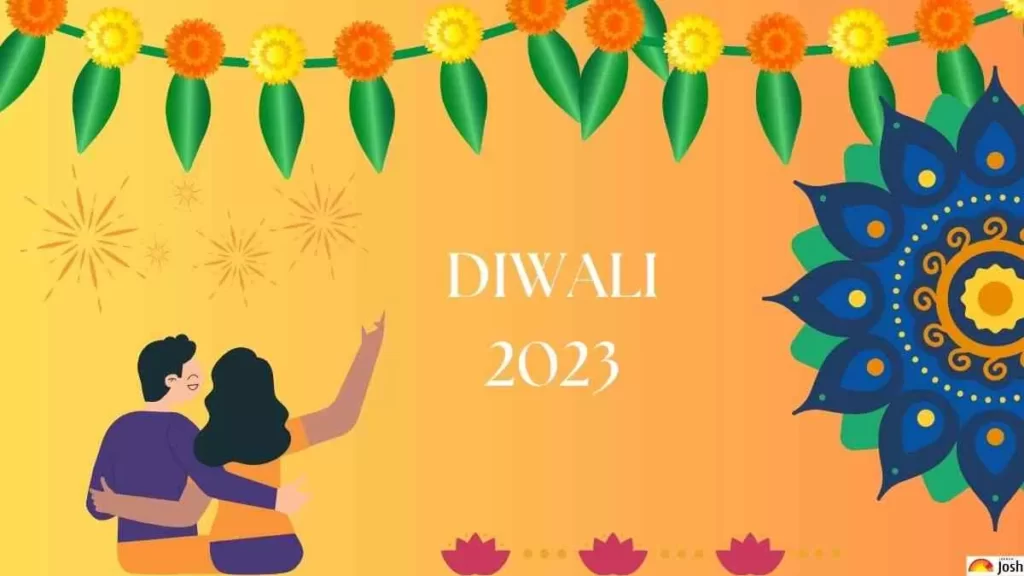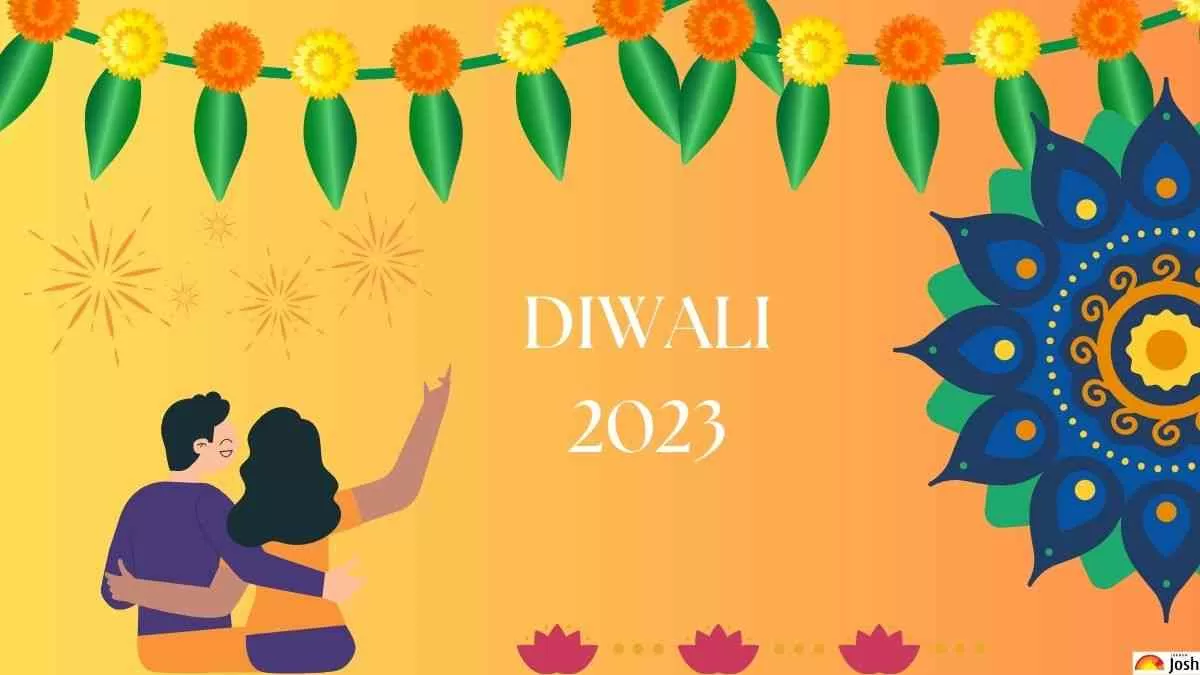
Diwali 2023: Diwali, the festival of lights is an annual celebration in the month of October or November. Check out all about the 5-day Hindu observance and its significance.
Diwali 2023: Diwali also known as Dewali, Divali, or Deepavali is a socio-cultural festival. The term is derived from the Sanskrit words dīpa, “lamp, light, lantern, candle, that which glows, shines, illuminates or knowledge” and āvali, “a row, range, continuous line, series.” It is connected to various religious events, deities and personalities, but is popularly celebrated as the return of Rama to his kingdom in Ayodhya after 14 years of exile. It is also widely associated with Lakshmi, the goddess of prosperity and Ganesha, the god of wisdom and the remover of obstacles.
Diwali, the five-day-long festival that originated in the Indian subcontinent is known as Jain Diwali, Bandi Chhor Diwas, Tihar, Sowanti, Sohrai, Bandna etc. in different countries and religions. However, the significance of the celebration is similar irrespective of names, i.e. ‘victory of light over darkness, good over evil, and knowledge over ignorance
When is Diwali in 2023?
Diwali is a five-day celebration observed in the Hindu lunisolar months of Ashvin and Kartika (mid-October to mid-November). The ancient calendar states that Diwali is celebrated annually on Amavasya or the fifteenth day of the month of Kartik. This year the festival of lights will fall on Sunday, November 12, 2023.
Check the tables below to learn about the different days of Diwali, Shubh Muhrat and more.
Diwali Date and Muhrat
| Date | Event |
| Diwali | 12 November 2023 |
| Laxmi Puja Muhurat | 04:21 PM to 06:02 PM |
| Amavasya Tithi Begins | 11:14 AM on Nov 12, 2023 |
| Amavasya Tithi Ends | 11:26 AM on Nov 13, 2023 |
About All 5 Days of Diwali
| Date | Day | Event |
| 10 November 2023 | Friday | Dhanteras |
| 11 November 2023 | Saturday | Chhoti Diwali |
| 12 November 2023 | Sunday | Diwali |
| 13 November | Monday | Govardhan Puja |
| 14 November | Tuesday | Bhaiya Dooj |
Dhanteras: In most regions of India, Dhanteras, which originates from the words Dhan, which means wealth, and teras, which means thirteenth, signifies the start of Diwali and the thirteenth day of the dark fortnight of Ashwin or Kartik. The name Dhan for this day also alludes to the Ayurvedic deity Dhanvantari, the god of health and healing, who is thought to have emerged from the “churning of cosmic ocean” on the same day as Lakshmi. It also represents annual rejuvenation, purification, and an auspicious beginning to the following year.
Chhoti Diwali: The second day of celebrations includes Naraka Chaturdashi, commonly referred to as Chhoti Diwali, which falls on the fourteenth day of the dark fortnight of Ashwin or Kartik. Chhoti means small, Naraka means hell, and Chaturdashi means “fourteenth,” respectively. According to mythology, this joyous day is associated with Krishna’s defeat of the demon Narakasura, who had kidnapped 16,000 princesses.
Diwali: The biggest celebration takes place on the final day of Ashwin’s or Kartik’s dark fortnight. Diwali is also known as the “festival of lights” since it marks the illumination of Hindu, Jain, and Sikh temples and residences. It signifies the “reenactment of the cleansing, purifying action of the monsoon rains.”
Govardhan Puja: The first day of Kartik’s bright fortnight is the day after Diwali. In some parts of the world, it is also celebrated as Annakut (mound of grain), Padwa, Goverdhan puja, Bali Pratipada, Bali Padyami, and Kartik Shukla Pratipada. According to the most well-known folktale, the Hindu god Krishna lifted the Govardhan mountain to save the farming and cow-herding villages from continuous rains and floods brought on by Indra’s wrath.
Bhai Dooj: The final day of the celebration, which falls on the second day of Kartik’s bright fortnight, is known as Bhai Duj, Bhau Beej, Bhai Tilak, or Bhai Phonta. Similar to Raksha Bandhan in essence, it honours the sister-brother bond. Some see this joyful day as a sign of Yama’s sister Yamuna welcoming Yama with a tilaka, while others see it as Krishna’s entrance at Subhadra’s house following the defeat of Narakasura. He was also greeted by Subhadra, with a tilaka on his forehead.
Diwali, also known as the Festival of Lights, is a major shopping period all over the globe. During this five-day festival, people decorate their homes with oil lamps and colourful rangoli designs. They exchange gifts, wear new clothes, and indulge in delicious sweets and festive meals. Fireworks light up the sky, symbolizing the victory of light over darkness. Families gather to perform religious rituals and prayers, seeking blessings for prosperity and well-being to celebrate Diwali, a time of joy, togetherness, and the triumph of good over evil.

